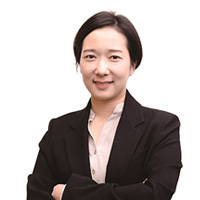Busan to become popular art destination with easing of pandemic restrictions
By Park YunaPublished : April 5, 2022 - 18:27

The southern port city of Busan expects to draw art lovers from home and abroad with two major art events that will kick off in May and September -- Art Busan and Busan Biennale -- as the government eases restrictions against the pandemic.
Art Busan, scheduled to open on May 12 for VVIPs and run from May 13 to 15 for the general public, will be joined by 134 galleries from 21 countries at the Busan Exhibition and Convention Center. The number of international galleries from abroad jumped to 33 compared to the 18 last year. Among the 33 galleries, 21 of them are joining the art fair for the first time, according to the organizer.
Among the first timers is Gray, a renowned gallery based in Chicago and New York, that represents David Hockney, Alex Katz and Jaume Plensa.

Other returning galleries include Europe-based Taddaeus Ropac, which will have a larger booth this year and is joining the art fair for the third consecutive year, Berlin-based Efremidis, Hong Kong-based Tang Contemporary Art and Whitestone Gallery and Two Palms from New York.
“We think that art fair and tourism should go hand in hand for Art Busan because many visitors -- including collectors, gallerists and artists -- stay in the city for days, unlike Seoul,” said Byun Won-kyung, CEO of Art Busan, during a press conference in Seoul on Monday.
The art fair will feature 14 special exhibitions under the title “Experiment,” which will include an 8.7-meter-long photographic drawing by David Hockney that will be on display at Gray’s booth. VVIP guests will also get a chance to go on a tour of collectors’ houses and artists’ studios in the city.
Busan Biennale 2022, helmed by artistic director Kim Hae-ju, will explore the modern history of the city, looking into how the city has changed under Japan’s colonization, the Korean War and industrialization. The story of migrants, changing lifestyles and labor structures will be explored at the biennale.

Pier 1 of Busan Harbor will be among the four venues of the 65-day biennale, which will start on Sept. 3 under the theme of “We, on the Rising Wave.” The 4,093-square-meter warehouse at the harbor will be turned into an exhibition space during the biennale. The pier was built in 1912 by Japanese colonialists to ship Korea’s resources out of the country. During the Korean War, the pier was where people displaced by the war arrived, according to Kim.
“I definitely feel that South Korea has become an emerging country for art globally. Many artists say they want to visit the country as well as Busan. We have high expectations for the biennale as the pandemic situation seems to be stabilizing and it also coincides with Frieze Seoul in early September,” Kim told The Korea Herald.
The biennale will be held at venues across the city including the Museum of Contemporary Art, Busan. Choryang-dong, a neighborhood located on the southern edge of central Busan, will also be featured, as well as Pier 1 of the Busan Harbor.
“The ‘wave’ in the title of the biennale refers to people who have come to and left Busan, and who established the city. It also means the history of Busan continues to evolve. We will show the identity of Busan by connecting the harbor, the city’s islet and the town in Choryang-dong,” Kim said at the press conference on Monday.
The Busan Biennale is a leading contemporary art festival in the country, along with the Gwangju Biennale, which is to take place next year.
By Park Yuna (yunapark@heraldcorp.com)








![[Today’s K-pop] Blackpink’s Jennie, Lisa invited to Coachella as solo acts](http://res.heraldm.com/phpwas/restmb_idxmake.php?idx=644&simg=/content/image/2024/11/21/20241121050099_0.jpg&u=20241121172748)









